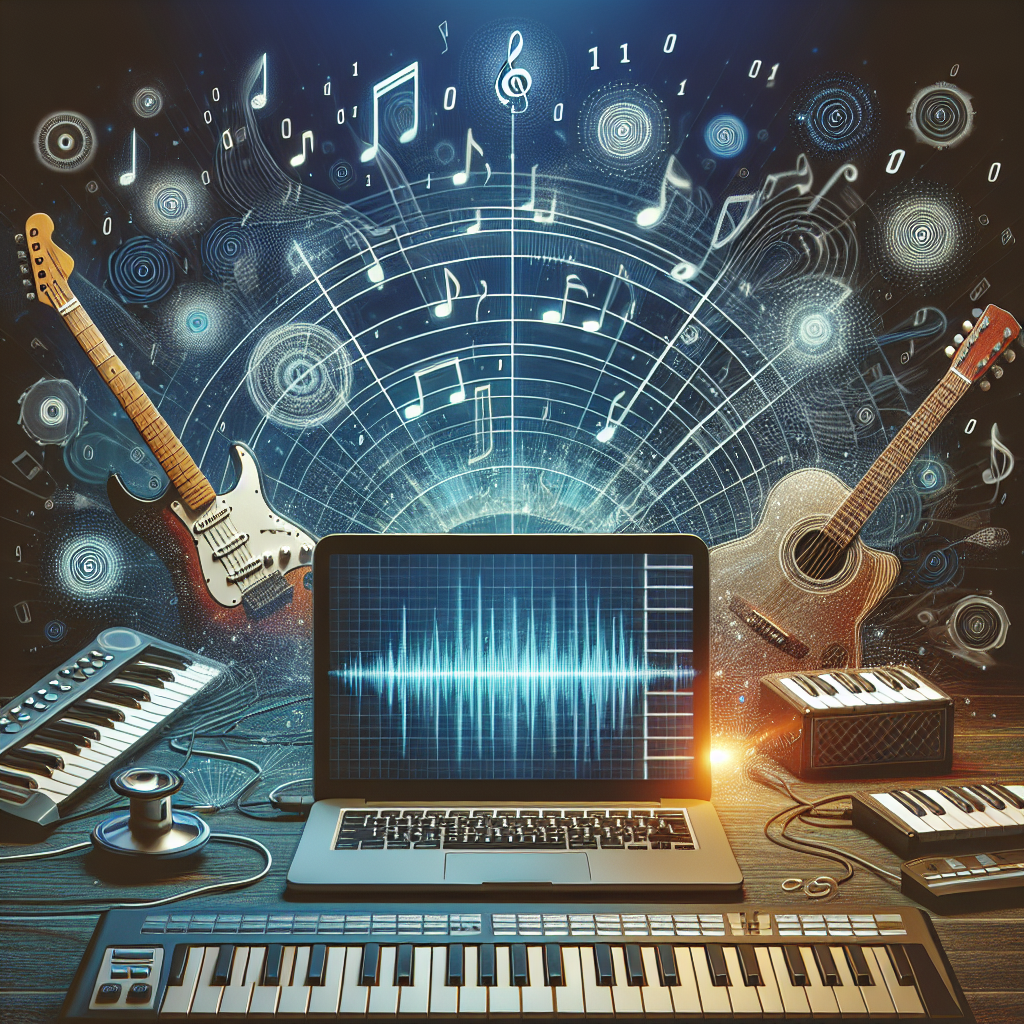AI in Music: The Power of Algorithms in Creativity
Artificial Intelligence (AI) has revolutionized many industries, and the music industry is no exception. From composing music to creating personalized playlists, AI is changing the way we experience and create music. The use of algorithms in music has led to new possibilities and innovations that were previously unimaginable. In this article, we will explore the power of algorithms in creativity and how AI is reshaping the music industry.
The Role of AI in Music Composition
One of the most exciting applications of AI in music is in composition. AI algorithms can analyze vast amounts of music data and learn patterns and structures from different genres and styles. This allows AI to generate new and original compositions that are inspired by existing music but have a unique twist.
One of the most famous examples of AI in music composition is the AI-generated album by Taryn Southern, an artist who collaborated with AI to create an entire album called “I AM AI.” The album was composed using AI algorithms that analyzed popular music trends and created new songs that sounded like they were written by a human artist.
AI can also be used to assist human composers in the creative process. By analyzing a composer’s style and preferences, AI algorithms can generate suggestions and ideas for melodies, harmonies, and arrangements. This can help composers overcome creative blocks and explore new directions in their music.
The Role of AI in Music Production
AI is also transforming the way music is produced. AI algorithms can analyze audio data and automatically adjust levels, mix tracks, and apply effects to create polished and professional-sounding recordings. This can save time and effort for producers and engineers, allowing them to focus on the creative aspects of music production.
AI can also be used to enhance live performances. AI-powered software can analyze real-time audio input from musicians and adjust sound levels, effects, and other parameters to create a consistent and balanced sound. This can ensure that every performance sounds its best, regardless of the venue or acoustics.
The Role of AI in Music Recommendation and Discovery
AI algorithms are also revolutionizing the way music is recommended and discovered. Streaming services like Spotify and Apple Music use AI to analyze user preferences, listening history, and behavior to create personalized playlists and recommendations. This helps users discover new music that they are likely to enjoy, based on their individual tastes and preferences.
AI can also be used to analyze music metadata, such as genre, tempo, and mood, to create curated playlists and radio stations that cater to specific moods or activities. This can help users find the perfect soundtrack for studying, working out, or relaxing.
FAQs
Q: Can AI truly be creative in music composition?
A: While AI can generate new and original compositions, some argue that true creativity requires human emotion and intuition. AI can certainly create music that sounds like it was composed by a human, but whether it can truly be considered creative is a matter of debate.
Q: How does AI learn to compose music?
A: AI algorithms learn to compose music by analyzing vast amounts of music data and identifying patterns and structures. By training on a diverse range of music genres and styles, AI can generate compositions that are inspired by existing music but have a unique twist.
Q: How can AI assist human composers in the creative process?
A: AI can assist human composers by generating suggestions and ideas for melodies, harmonies, and arrangements based on the composer’s style and preferences. This can help composers overcome creative blocks and explore new directions in their music.
Q: How does AI enhance music production?
A: AI enhances music production by analyzing audio data and automatically adjusting levels, mixing tracks, and applying effects to create polished and professional-sounding recordings. This can save time and effort for producers and engineers, allowing them to focus on the creative aspects of music production.
Q: How does AI personalize music recommendations?
A: AI personalizes music recommendations by analyzing user preferences, listening history, and behavior to create personalized playlists and recommendations. This helps users discover new music that they are likely to enjoy, based on their individual tastes and preferences.
In conclusion, AI is transforming the music industry in exciting and innovative ways. From composing music to producing recordings and recommending new music, AI algorithms are pushing the boundaries of creativity and reshaping the way we experience and create music. As AI continues to evolve and improve, we can expect even more groundbreaking innovations that will change the landscape of music forever.

